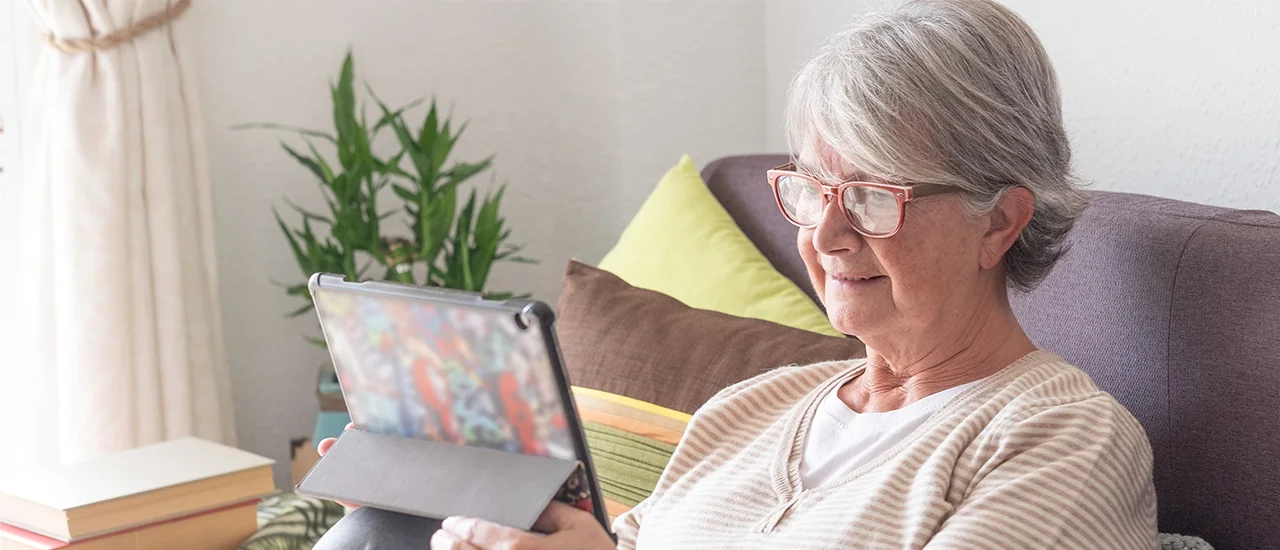We also like to talk online

Status
Mild cognitive impairment and loneliness are currently two of the biggest problems faced by the elderly, reducing their self-esteem, independence and quality of life. In the framework of the SIBDdev European Project, we developed Nos Gusta Hablar También Online which has three objectives:
- Show the benefits of cognitive stimulation.
- Reduce loneliness.
- Close the digital gap.
Objective
The human factor was identified as a key element for the project’s success, with a team of professionals who guide users through setting up, monitoring and developing the project. The result is a remote programme using cognitive stimulation software that helps to improve cognitive ability, increase social networks and support digital skills learning.
It works on three main strands:
Cognitive stimulation:
A scientifically-approved software uses artificial intelligence and gamification to perform an initial assessment of the user’s cognitive abilities and then offers them a totally personalised training programme. Professional accompaniment, both in person and online, is fundamental to ensure commitment to the programme and support users in improving their digital literacy.
Conversation groups:
Different groups of similar people are created, always accompanied by one of the team psychologists They have weekly videocalls where they discuss topics of interest, previously identified during the assessment stage. Current and generic topics will be discussed, such as social networks, loneliness and ageing.
Technology take-up:
In the first step of the project, tablets are distributed to users and short training sessions are held to ensure all participants have the skills needed to interact with the devices. Participants receive continuous support throughout the programme, with training and help resolving questions and issues to help them progress.
Results and conclusions
An assessment is carried out before and after the programme where positive improvement is recorded in all assessed areas. After six months of the programme, participants recorded an increase of 15% in overall cognitive ability and a satisfaction rate of 97%, and a desire to continue using these types of tools. With regards to socialisation, the overall average was a 6% decrease in loneliness .
An attendance of 83% was recorded in the videocalls, a 36% increase in digital skills and a 10-hour increase in the average connection to the cognitive stimulation programme compared to the initial approach.
The results also concluded that valuable positive ties were created between participants that reflect the effectiveness of a professional person-centred approach using proactive remote monitoring and follow-up. Spontaneous connections were made between participants when they met in person, reinforcing and giving continuity to the programme.